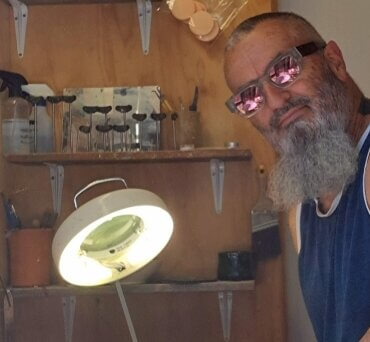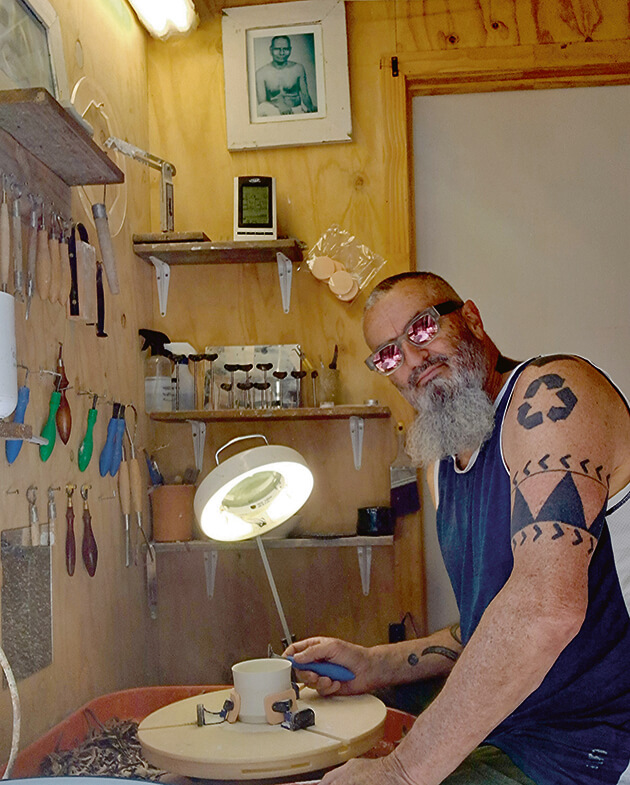
Lee Johnston
Lee Johnston battled depression when his father died when he was only 15.
“I had my own things going on when I was a young fella,” said the Maungatautari potter who is now 61.
“When I lost my dad to cancer I went through a lot of depression. It’s a bit of an epidemic in New Zealand and we have got the highest suicide rates.”
New Zealand has one of the highest suicide rates in the OECD with 617 deaths in 2023-24. Males are more than twice as likely to die by suicide than females.
Johnston chose to open up with The News about his journey back from depression to mark Movember, the annual campaign to raise awareness of men’s health.
“Dad was a major part of my life, and I was my father’s son. He was only 51 and no one had answers for me. I had no support.”
Johnston came from a family who worked hard in the week, relaxed at the weekend, and did not talk about struggles.
He said he lost himself in alcohol and fled to Australia where he nearly ended it all.
But something stopped him.
“I started to get my life back together and I found more answers than I expected,” he said. “I came out the other side.”
Returning to New Zealand, Johnston spent some time training to become a councillor and worked for a while in that field.
He then spent 20 years in the film industry, involved in set dressing and props.
About five years ago Johnston and his partner turned their hands to throwing pottery and establish Memento Mori Ceramics in the foothills of Sanctuary Mountain Maungatautari.
When The Mandarin Tree Art Gallery director Claudia Aalderink asked Johnston to exhibit in the Boys Will Be Boys exhibition staged in November to support men’s health, he was all in.
Each piece in the exhibition tells its own story, contributing to a larger conversation about the need for better care, resources, and support for men’s health issues.
“This show is about more than art,” said Aalderink
“It’s about untangling what we’ve been taught to believe about masculinity, strength, vulnerability, and identity.”
“I want this exhibition to hold space for real voices. The artist’s voice. Their voice is important. Their perspective matters. We hope to shift the narrative together.”

Lee Johnston says he could not see a way out after losing his dad to cancer.








